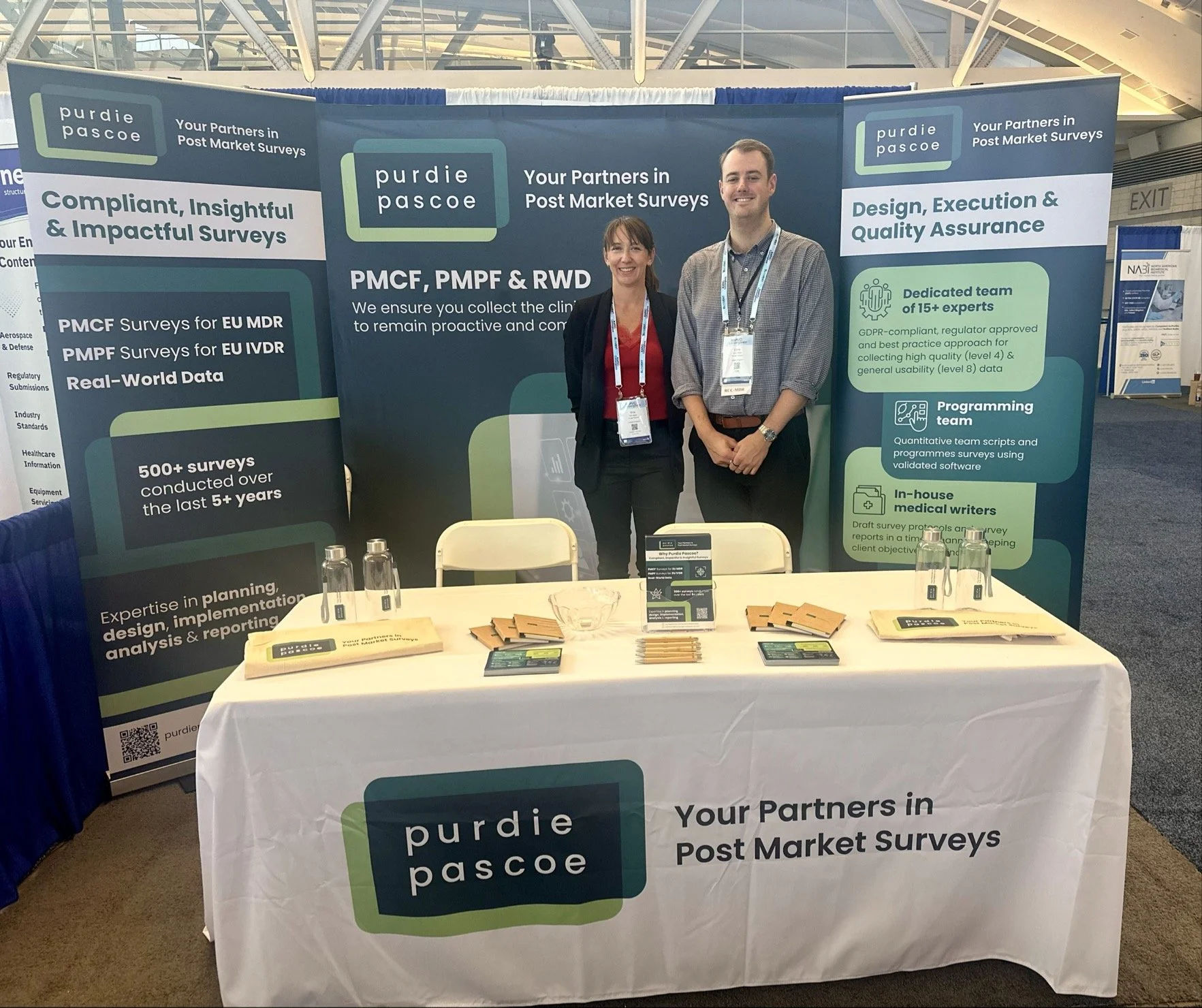Reflections from the 2025 RAPS Convergence: Putting Patients First and Embracing the Promise of AI
By Chris Webb, Research Manager | RCC -MDR & Ellie Baker, Commercial Director
Attending this year’s RAPS Congress we were reminded of why we do what we do; at the heart of every conversation from regulatory reform to AI innovation there was one shared purpose: improving patients’ lives.
Putting Patients at the Centre
The opening session kicked off with “a love letter to science”, a call to rebuild trust by ensuring that innovation serves patients responsibly.
Speakers across sessions emphasised that the regulatory process isn’t just about compliance, it’s about ensuring patients have access to safer, more effective solutions, faster. This requires us to continually improve how we communicate, collaborate, and operate across the industry. It also means actively listening to patients not just during development, but throughout a product’s lifecycle.
That’s where Post Market Surveys play a vital role. At Purdie Pascoe, we specialise in capturing real-world insights directly from patients and clinicians once products reach the market. These insights go beyond the controlled environments of clinical investigations; they offer a window into how medical technologies perform in daily life and how they truly impact patient outcomes.
Aligning on Safety
One message that stood out was the call to bridge the gap between how regulators and the public define “safety.” In a regulatory sense, a device is safe when its benefits outweigh its risks. But to the public, safe often means “free from harm”. Clearer, more empathetic communication is essential if we want to build understanding and trust.
We were reminded of the importance of patient advocacy groups and the crucial role they play; they are partners who help ensure patients’ voices and lived experiences are heard in the development and evaluation of medical technologies. After all, patients often have the clearest sense of what truly meaningful endpoints look like.
AI in Healthcare
Unsurprisingly, AI was a hot topic throughout the Congress. It offers enormous potential to advance science, streamline processes, and improve patient outcomes, but also introduces complexity and new regulatory challenges.
A clear takeaway: a robust Quality Management System (QMS) remains the foundation for safe AI. This includes effective risk management, clinical evidence generation, and continuous lifecycle monitoring. Global regulations around AI are evolving rapidly, and it’s essential that organisations stay informed and proactive.
News from the EU Commission: At a policy level, the European Commission is taking steps to review the cost and complexity of implementing MDR and IVDR for manufacturers and Notified Bodies. The goal is to reduce regulatory burden while maintaining patient safety and supporting continued innovation.
Looking to the future
To truly deliver on the promise of better, safer, and faster access to medical technologies, we need collaboration between regulators, manufacturers, patient groups, and the scientific community. Simplified product labelling, transparent communication, and patient-centred endpoints are just a few of the ways we can keep patients at the heart of innovation.
At Purdie Pascoe, we’re proud to contribute by delivering Post Market Surveys that provide robust, patient-centred evidence. Real-world insights are not just a regulatory requirement, they’re a way to ensure that medical technologies continue to meet the needs of the people who rely on them most.

